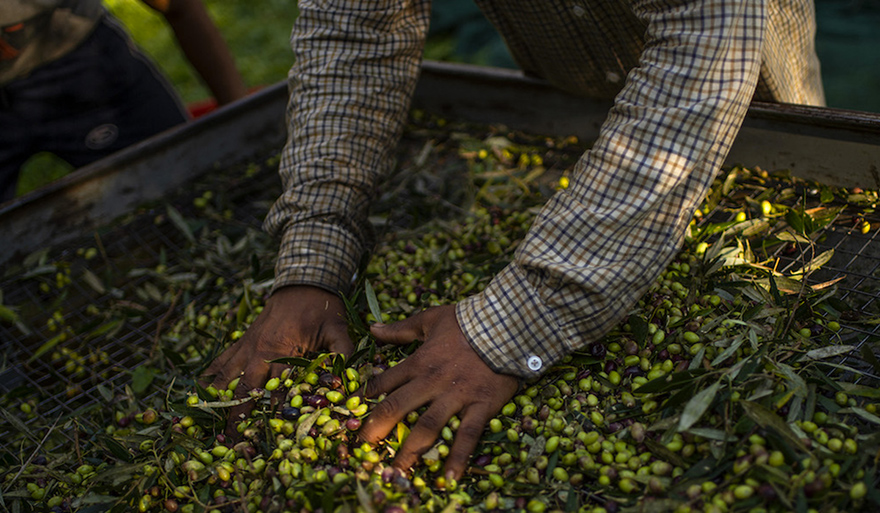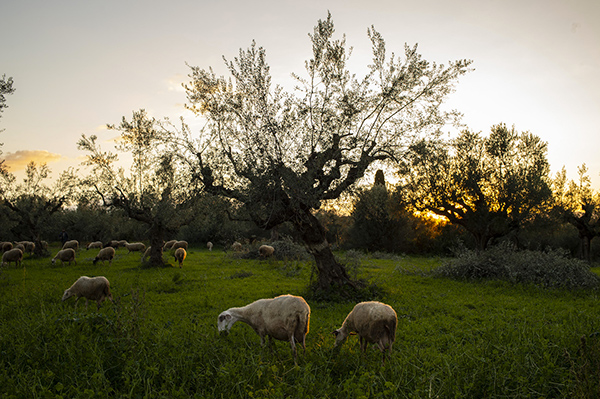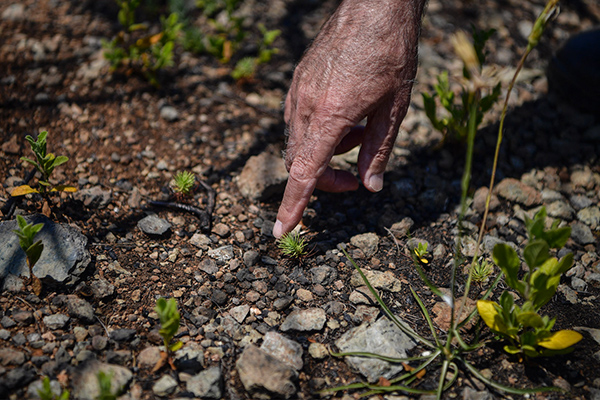Greek agriculture and climate crisis
One of the areas most vulnerable to the effects of climate change is currently undergoing major disturbances and changes.

Euboea and Athens (Greece)
After the devastating wildfires in July 2021 on the island of Euboea, Greece is dealing with a major internal migration mainly from farmers due to the climate crisis. Greece as a Mediterranean country, is considered one of the recorded vulnerable areas to the impacts of climate change.
Agriculture both contributes to climate change and is affected by climate change. Agriculture accounted for 10% of the EU’s total greenhouse-gas emissions in 2012.Climate change has a severe impact on agricultural production, both in the short and long term.What is happening to a Mediterranean country, like Greece where agriculture is the main and related industries that contributed the most to the gross domestic product (GDP)?
“Greece and the Mediterranean face agricultural decline under the impact of climate change but it is something that we can act on.”, says Panagiotis Mylonas, entomologist and research director in the Department of Entomology & Agricultural Zoology of the Benaki Phytopathological Institute.
Greece’s greenhouse gas (GHG) emissions have significantly declined over the past decade, mostly due to the recession and a shift towards cleaner energy. The climate performance of Greece, increasing the net emission of all its greenhouse gasses until 2007, in recent years has behaved more climate-responsibly, achieving in 2019 a reduction by almost 19%, compared to 1990 levels, still lagging far behind the European Union average. Being highly vulnerable to climate change, Greece has developed a detailed model of its impact and strengthened the policy and institutional framework for adaptation.
Athens, Greece
On a superb very close to the center of Athens, is located the Benakeio Phytopathological Institute, an initiative that was created in 1929 by the national benefactor Emmanouil Benakis. The Institute is the official body responsible for the control and evaluation of pesticides. It also participates in research programs and national and EU programs but also by individuals in the field of plant protection, consumer protection, pesticide protection, solutions to plant protection problems, the search for alternative management methods and the treatment of pests and plant diseases in general, environment and climate change issues. With more than four thousand samples to analyze last year, it shows how the Greek society is conscious about environmental issues.
We asked Mr Mylonas whether the institute, which is in the heart of Athens, is connected with the urban green of the city.
‘’In a city reaching high heat records, the development of the green urban spaces are more than necessary to make Athens a livable place. And not only that the plants are growing in the urban environment, where gas, cement and urbanization make the plant itself more sensitive, as it is constantly in a stress condition.’’, Dr. Mylonas explained.
Greek Agriculture
Farmers, as an active part of Greek society, have also understood how deep are the consequences of climate change. “I think some may admit it more and some less, but I think we have all realized that.” quote Dr Mylonas.
Cultivation practices are affected by extreme weather events and prolonged periods of high temperatures. They are exposed to nature and this affects them. ‘’Last summer we had a period of intense temperatures at a very high level. Then I think they realized that there is an impact on crops due to climate change. Another reason we understand this is because climate change is facilitating the emergence of new diseases and new problems either by expanding enemies into new environments that are now more conducive to growth due to rising temperatures or by introducing new organisms that can now be established here.”

A tropical species as it shows can be installed in some areas of Greece now when temperatures are allowed such as in our country where some problems have spread to areas that until recently did not have it due to climate change in temperature etc.
We asked the institute how farmers perceive climate change and what are the obvious elements in the Greek land. In essence, the damage that occurs, the changes in cultivation practices that must go hand in hand with the different growing season during it, especially after some extreme weather events that make them difficult.
The main questions are whether turning to more resilient crops is the only way or if it is really possible to lose traditional Mediterranean cultivation habits. “Adjustment is necessary, but it can not be done overnight, explained Dr Mylonas. Our crops need to be done as needed as they need to have less water requirements in irrigation which means we have to either change qualities that can work.”
”It takes research and testing in practice to change the way we cultivate and turn to more ecological cultivation methods, which means we cultivate something else. Avoid intense cultivation of the soil. But all this is often misled by people who are not farmers and I think or even farmers think that it is that with some general guidelines that they will apply everyone will be able to cope with the problem. But the guidelines will be specific to each and every agricultural sector.”
Hand ons work
The study of the phenomena of climate change in relation to crops as well as the information of farmers and the state are the first steps. “The models show that Greece will be affected, I believe we are at an early stage as a country. Of course clearly a threat.” Dr Mylonas claims. The main problems in Greece are the emergence of new diseases and new mutations in existing patients, in addition, their seasonal development has expanded. Still, the water requirements as temperatures rise, cause the plant to have difficulty absorbing nutrients from the soil. This also causes panic among farmers in hot weather, which overwhelms the plants which makes the plants very sensitive to high temperatures and thus have sunburn.
Dr Mylonas describes to us the technological innovation the institute has created as a project of one of the EU’s funding instruments for the environment and climate action program called LIFE. The measurement of gas emissions from a field from which it can calculate which energy is charged by the environment and can be changed to protect the environment. It's a free tool on the institute's website and anyone can use it for free. Open access tools at the institute are fundamental.

The measurement of the gas emissions of a field from which one can calculate what energy is charged to the environment and can be changed to protect the environment.
Another project that they are working on now and will launch soon is a platform where the farmer records all his actions and his algorithm calculates his financial cost but his energy cost, his footprint in the environment and rates his action both in terms of the financial burden but the environmental impact, so that with the appropriate indication to avoid. “Projects that respond to the modern farmer but in order to be done on a larger scale need support from the Greek state. There is a lack of continuity in that kind of project as well as a lack of connection of information between state policies and the farmers.” professor commented.
The Greek Garden in the city
Athenias, citizens of the Greek capital are also suffering from the climate crisis, especially due to high temperatures and the lack of green spaces in the city. The phytopathological institute is promoting and counseling the environmental services of the state to adopt more resilient practices to increase the urban green. Due to high temperatures gardening in the cities are planting herbs like rosemary, levanter, oregano etc. This way of planting is known around as the Greek Garden. This practice is more adapted to modern climatic conditions. These gardens offer seasonality of the garden that is pleasant for the citizen as the smell of aromatic plants and the observation of the change of colors with the change of seasons cause feelings of well being that have also a social impact. The Greek garden is a practice that can be applied in other cities of Europe.
‘’We are looking for pioneers in the field because they open the way and others will follow them. In the application of other techniques and other concepts’’, concludes Dr Mylonas.
 This article was produced as part of the Union Is Strength competition, organised by Slate.fr with the financial support of the European Union. The article reflects the views of the author and the European Commission cannot be held responsible for its content or use.
This article was produced as part of the Union Is Strength competition, organised by Slate.fr with the financial support of the European Union. The article reflects the views of the author and the European Commission cannot be held responsible for its content or use.